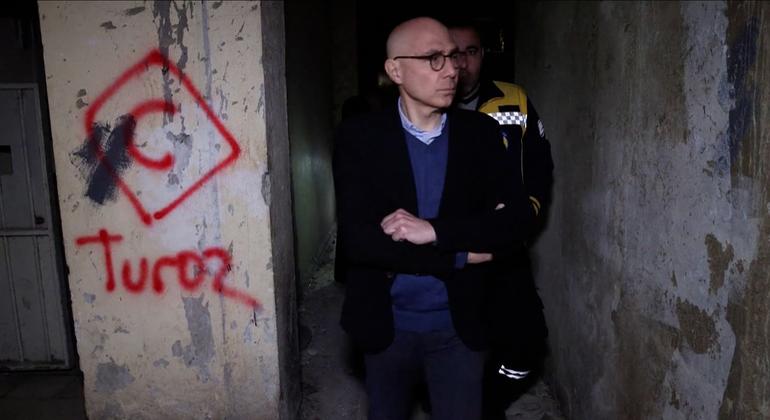The Independent International Commission of Inquiry on Syria has released a report detailing the horrific crimes against humanity and war crimes that have plagued the country for over a decade. The legacy of trauma left behind for countless Syrians represents some of the worst violations of international law during this brutal conflict.
Paulo Sérgio Pinheiro, Chair of the Commission, emphasized the critical juncture that Syria faces now. With the fall of the Assad regime and the release of prisoners, there is an opportunity for the caretaker government and future Syrian authorities to ensure that these crimes are never repeated. The findings from almost 14 years of investigations aim to end impunity for the patterns of abuse that have been uncovered.
The report, titled “Web of Agony: Arbitrary Detention, Torture and Ill-Treatment in the Syrian Arab Republic,” is based on over 2,000 testimonies, including accounts from more than 550 survivors of torture. The Commission’s teams visited several grave sites and former detention facilities, including Sednaya Military Prison and branches of the former intelligence services in Damascus. Despite significant destruction of evidence and documentation, some materials were preserved, providing hope for families still searching for answers.
Commissioner Lynn Welchman highlighted the importance of the evidence gathered at these sites for families who have not found their loved ones among the freed detainees. This evidence, along with testimonies from survivors, may be the best hope for uncovering the truth about missing relatives. The new authorities have been commended for their commitment to protecting mass graves and evidence, with further efforts encouraged with the support of Syrian civil society and international actors.
The report outlines harrowing accounts of abuse, including severe beatings, electric shocks, rape, mutilation, and prolonged psychological and physical torture. Survivors and witnesses described deplorable prison conditions, with detainees suffering from malnutrition, disease, and untreated injuries. Some detainees were executed, while others died from their injuries in overcrowded and unsanitary cells.
With access to Syria for the first time since 2011, the Commission plans to expand its investigations with unprecedented access to sites and survivors who no longer fear reprisals. Safeguarding evidence and archives is crucial, with coordinated efforts needed from Syrian civil society and international actors.
Commissioner Hanny Megally highlighted the importance of national courts outside Syria using the principle of universal jurisdiction to bring perpetrators of war crimes and crimes against humanity to justice. Credible national justice initiatives are now hoped for, where survivors and families can be involved in seeking justice for the atrocities that have been committed.
The findings from the Commission’s report shed light on the depths of the suffering endured by Syrians during this long and brutal conflict. The atrocities committed must not go unpunished, and steps must be taken to ensure that such crimes are never repeated. The international community has a role to play in supporting national justice initiatives and holding accountable those responsible for the grave violations of international law in Syria.









